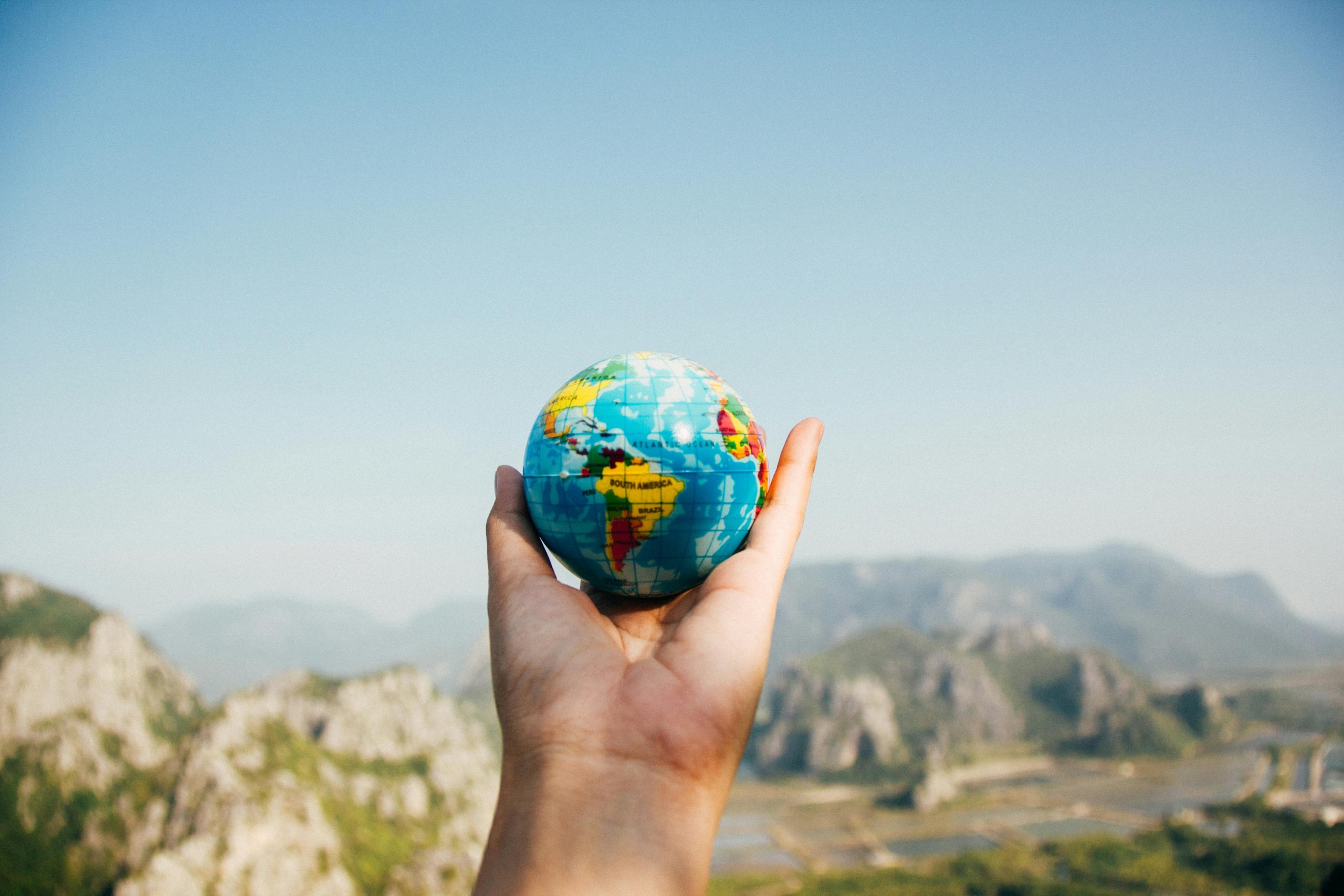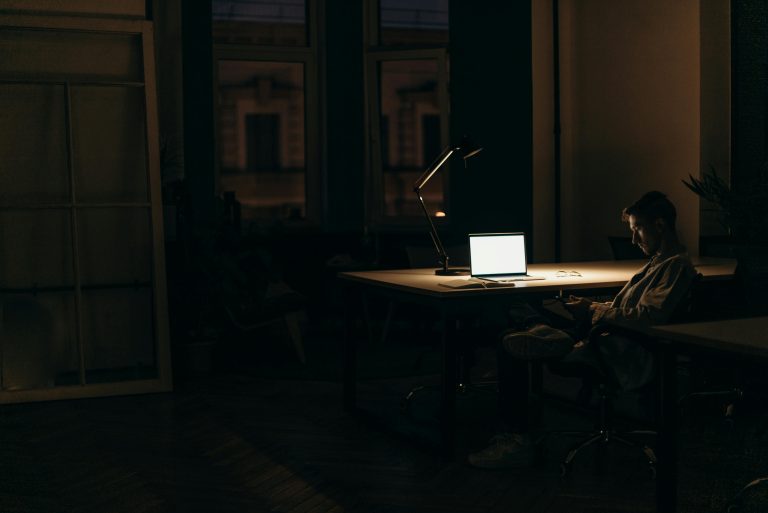Do You Feel Like You Were Made for a World That Doesn’t Exist?
Have you ever felt like you’re living in the wrong world? Like you were designed for a reality with deeper connections, more authenticity, and less superficiality than the one you’re currently in?
This feeling of existential displacement (of being somehow “out of sync” with the world around you) is something many people experience but few discuss openly.
I recently came across a heart-wrenching post online from someone who articulated this feeling perfectly:
“I’m not suicidal in the typical way. I don’t hate myself. In fact, for the first time in my life, I finally like who I am. I think I’m a good person, someone with real depth, empathy, insight—but I feel like none of it matters. I don’t fit in the world I live in.”
Those words resonated deeply with me, and judging by the responses, they resonated with many others too. So today, I want to explore this unique form of loneliness: not the simple absence of people in your life, but the profound feeling that you’re somehow fundamentally different from the world you inhabit.
The Paradox of Modern Connection
We live in the most connected era in human history. Social media, instant messaging, video calls, we have countless ways to “connect” with others. Yet studies consistently show that loneliness has reached epidemic proportions, particularly among young adults.
Why? Because technological connection isn’t the same as genuine human connection.
When you’re someone who craves depth, who wants to talk about life’s biggest questions, share vulnerabilities, and connect on a soul level, scrolling through carefully curated social media feeds can feel like walking through a desert dying of thirst while everyone around you pretends water doesn’t exist.
As the original poster wrote:
“I feel like I’m living in a world built for people who want shallow connection, constant distraction, and no real reflection.”
This disconnect isn’t just in your head. Research psychologist Sherry Turkle has spent decades studying how technology has changed the way we relate to each other. In her book Alone Together, she argues that our digital connections have paradoxically made many of us feel more isolated: we’re constantly “connected” yet rarely truly seen.
The Pain of Not Being Seen
One of the most painful aspects of this experience is the feeling that no one truly sees you. As the post I referenced stated:
“What hurts the most is that no one sees me. Not really. Not my family, not my friends, not even my therapist.”
This invisibility cuts deep because humans are fundamentally social creatures. We evolved to live in tight-knit communities where being seen and understood wasn’t just emotionally fulfilling, it was necessary for survival.
According to Maslow’s hierarchy of needs, belonging and love are foundational human requirements, only slightly less essential than physical safety. When these needs aren’t met, we suffer not just emotionally, but physically.
Research shows that chronic loneliness increases inflammation in the body, weakens immune function, and raises the risk of numerous health problems including heart disease, stroke, and dementia. A meta-analysis published in PLOS Medicine found that lacking social connection is as damaging to health as smoking 15 cigarettes daily.
The Curse of Self-Awareness
Perhaps the cruelest aspect of this experience is that increased self-awareness often makes the loneliness more acute, not less. As the original poster wrote:
“I don’t blame myself. That’s what makes it feel hopeless. I know I deserve love now. I know I have value. But that self-awareness just makes the emptiness louder.”
When you’re unaware of what you’re missing, the pain is diffuse. But when you’ve done the work, gone to therapy, practiced self-compassion, developed emotional intelligence, and still find yourself fundamentally disconnected, the loneliness takes on a sharper edge.
This is what psychologists sometimes call the paradox of awareness. The more conscious you become of your own needs and patterns, the more clearly you can see the disconnect between what you need and what the world offers.
Are You Really Alone?
If you’re feeling this way, I want to offer some perspective that might help:
- You’re part of a hidden community. The very fact that posts about feeling fundamentally disconnected from the world resonate with thousands suggests there are many others who feel as you do. The challenge is that people who feel this way often withdraw from social spaces, making themselves invisible to each other.
- Your sensitivity is a strength, not a weakness. In his research on highly sensitive people, psychologist Elaine Aron found that approximately 15-20% of the population has a more sensitive nervous system, processing sensory data more deeply and experiencing emotions more intensely. This trait is associated with greater empathy, creativity, and spiritual awareness, but also with feeling overwhelmed in a world not designed for sensitivity.
- This feeling has historical precedent. Philosophers and thinkers throughout history have grappled with similar feelings. Existentialist philosophers like Søren Kierkegaard and Jean-Paul Sartre wrote extensively about the fundamental alienation of human existence. Writers from Dostoevsky to Kafka to Camus explored the feeling of being a stranger in an indifferent world.
Finding Your People
So how do you find connection when you feel so fundamentally different? Here are some approaches that have helped others:
1. Look for depth in unexpected places
Sometimes we have preconceived notions about where we’ll find meaningful connection. We might assume we’ll connect with people who share our age, background, profession, or interests. But sometimes the deepest connections come from unexpected places.
I’ve found profound connection with people decades older than me, from wildly different backgrounds, who on paper shouldn’t understand me at all, yet somehow they do. Be open to finding kindred spirits in unexpected places.
2. Create spaces for authentic connection
If you can’t find the depth you’re seeking, consider creating it. Start a book club focused on existential themes. Organize a philosophy discussion group. Host a gathering where phones are left at the door and conversation prompts encourage vulnerability.
Projects like The School of Life and The Stoa have created spaces specifically designed for deeper conversation and connection.
3. Explore contemplative practices and communities
Throughout history, people seeking deeper meaning have gathered in contemplative communities. While traditional religious institutions don’t resonate with everyone, many meditation centers, retreat spaces, and spiritual communities offer environments where deep questions are welcomed rather than avoided.
4. Consider digital communities focused on depth
While much of social media promotes superficiality, there are digital spaces designed specifically for deeper connection.
5. Therapy and support groups
Finding a therapist who specializes in existential issues can be transformative. Existential therapy specifically addresses questions of meaning, purpose, and the fundamental human condition.
Support groups for specific challenges can also provide unexpected depth. When people are going through difficult experiences (grief, illness, major life transitions) the usual social masks often drop away, creating space for more authentic connection.
The Value of Existential Loneliness
While I don’t want to romanticize suffering, there can be value in the very experience of feeling fundamentally different from the world around you. As psychiatrist and Holocaust survivor Viktor Frankl wrote in Man’s Search for Meaning, finding meaning in suffering can transform our relationship to it.
Your capacity to feel deeply, to notice what others miss, to crave authenticity in a world that often rewards performance… these are gifts, even when they’re painful. The very qualities that make you feel out of place are often the same qualities that allow you to create meaningful change, produce moving art, or deeply understand others.
Some of history’s most influential thinkers, artists, and change-makers felt fundamentally at odds with the world they inhabited. Their discomfort with the status quo drove them to imagine and create alternatives.
Finding Peace Within the Tension
Perhaps the most reasonable approach is not to try to eliminate the tension between yourself and the world, but to find a way to live with it productively.
Psychologist Carl Rogers believed that the good life is not a fixed state but a direction, a continual process of becoming more fully yourself. This process often includes:
- accepting the reality of your experience (acknowledging that your feelings of disconnection are valid rather than trying to talk yourself out of them);
- taking responsibility for creating meaning (recognizing that while you can’t control how others respond to you, you can choose how you respond to the world);
- practicing radical authenticity (committing to being genuine even when it’s uncomfortable, which paradoxically often attracts others who value authenticity);
- cultivating self-compassion (treating yourself with the same kindness you would offer a friend going through a difficult time).
You Are Not Alone in This
If you’re feeling like you were made for a world that doesn’t exist, I want you to know that you’re part of a long tradition of sensitive, thoughtful humans who have felt the same way.
Your loneliness, painful as it is, connects you to countless others across time and space who have looked at the world and thought: “There must be more than this.”
As the philosopher Martin Buber wrote: “All journeys have secret destinations of which the traveler is unaware.”
Perhaps the very feeling of being made for another world is what will eventually lead you to create (or discover) precisely the world you’ve been seeking.
I’d love to hear from you: addie {at} anonymousfriend.co 📩 Do you relate to this feeling of being made for a different world? What has helped you find connection despite feeling fundamentally different?







